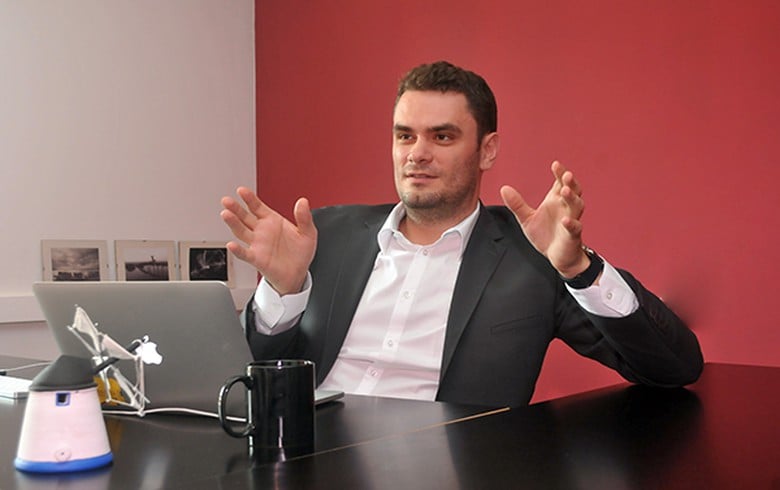In the past several years, the shortage of skilled labor in Bulgaria and the EU overall has materialized as a key issue for the development of the national and the regional economies. The Ministry of Innovation and Growth estimates that the business sector in Bulgaria is expected to need more than 150,000 skilled workers in the next 3 to 5 years.
For many years, highly-skilled third-country nationals have struggled to land their desired job inside the European Union. Russian, Belarusian, and other non-EU citizens have applied to come and work in Bulgaria, but complicated procedures and burdensome bureaucracy have resulted in their personal demotivation and Bulgaria’s loss of qualified labor.
Building on previous developments, the Bulgarian Ministry of Innovation and Growth has recently elaborated a new mechanism for fast-track processing and issuing of the so-called Blue Card. It allows groups of minimum 10 highly-skilled professionals residing in countries outside the EU to relocate to the Bulgarian labor market, earning gainful employment and a residence permit.
The Recursive spoke to representatives of the Ministry of Innovation and Growth and Ilia Krastev – Chairman of AIBEST (the Association for Innovation, Business Excellence, Services and Technology), to get the details on what employers in Bulgaria and non-EU professionals should know about the process of issuing Blue Cards.

What are Blue Cards?
The Blue Card is the approved EU work permit that allows non-EU citizens to work in Bulgaria for a period of up to 4 years. It is available to highly-skilled professionals from third countries, who want to relocate to a new market in one of the EU member states.
They will be able to work and live for a certain period (1-4 years, depending on the country) in 25 of the 27 EU countries, excluding Denmark and Ireland.
Overall, Blue Cards constitute a key tool for attracting highly-skilled individuals, including faster administrative procedures, more integrating criteria for admission of foreign employees, and simplified labor mobility.
From 3 to 1 months for reviewing applications under the new Blue Card mechanism
During the past years, AIBEST and the Bulgarian Startup Association (BESCO) have together undertaken an active communication with the Bulgarian government for further easing the administrative procedures for issuing a Blue Card. Their mutual aim has been to help businesses in Bulgaria grow and attract top talent for their operations by increasing the time efficiency and final outcome of the Blue Card applications.
The new mechanism allows companies who want to relocate more than 10 of their employees from third countries to do so under a fast-track procedure. This procedure reduces the time for reviewing the application document from 3 months to just 4 weeks.
“The processing time is essential – in 2020, the Blue Cards issued for Bulgaria were only 300, compared to almost 12,000 for the whole EU”, shares AIBEST Chairman Ilia Krastev.
The employers must present accurate and thorough information about the groups of candidates at [email protected], following the given template. This will launch the implementation of the fast-track procedure for processing and issuing of the permit.
This information must be presented a minimum 2 days before the official submission of the application and the necessary documents in the Migration Directorate at the Ministry of Interior.
Companies that need a letter of support should send an email to [email protected] with a request to receive such.
Employers’ applications will be reviewed with priority only if they meet the specified criteria: each application must contain at least 10 employees who work in companies that deliver high-added-value products to the Bulgarian economy.
“We need 1,000 employees per month for this mechanism to work. We are far from that”, Ilia Krastev comments.
The Blue Card as a key tool for boosting business growth and diversification
In recent years, Ukraine has established itself as a hubspot for technological companies and outsourcing services in Europe. From a geopolitical angle, the war in Ukraine seriously hinders the operations of the businesses of such companies – thus, investors and founders are looking for other countries around Ukraine, close in market price and culture, to relocate their businesses.
“Although a large number of professionals who want to leave Ukraine cannot do that, there are still many who want to leave Russia and Belarus. The introduction of this new fast-track mechanism aims to accelerate the admission and implementation of qualified personnel from Russia and Belarus, and the attraction of international high-tech businesses leaving these countries to Bulgaria”, Ilia Krastev highlights.
He finds it crucial which countries will be able to attract this top talent as that will bring additional capabilities and know-how to the local labor market, and will undeniably bring a positive impact to the local startup ecosystem.
The Ministry of Innovation and Growth further adds that Blue Cards will thus allow people with high skills especially in ICT and other technology sectors to come to Bulgaria, already having an employment contract. Through integration and mutual learning, this will give Bulgarian employees of the company vast opportunities to earn new skills, upgrade their current ones, and expand their vision for professional development. In turn, the companies will be able to enlarge and diversify their business by also adding the elements of inclusivity and sustainability.
In the last few years, Bulgaria has grown significantly as a center for technology companies in Southeast Europe. “However, we are a small market in regards to the number of people and the potential for investors. The next step for Bulgaria to become a leader is to build the entire region as a market for technological services and products, but we need legislation to move fast forward”, Ilia Krastev summarizes.
The way forward
The new Blue Card mechanism brings high hopes that Bulgaria’s power for talent and business attraction will further expand in the years to come.
On a national level, currently, there are no new arrangements in the existing legislation for entry of third-country nationals in Bulgaria. However, proposed changes in the Acts for the Foreign Citizens and the Labor Migration will simplify entry procedures for employees and their families, if accepted.
The local startup ecosystem will be supported by another legislative initiative and ordnance that will cover the startup visa. It is expected to be adopted by the end of this year.
On a European level, the alignment of Bulgarian legislation with that of the EU is crucial. In parallel with the actions of the Ministry of Innovation and Growth, amendments to the Labor Migration and the Labor Mobility Act were introduced in the National Assembly. “This will create a clear and transparent system that will allow the more effective attraction of talent and contribute to overcoming the demographic challenges that Bulgaria faces”, Ilia Krastev explains.







